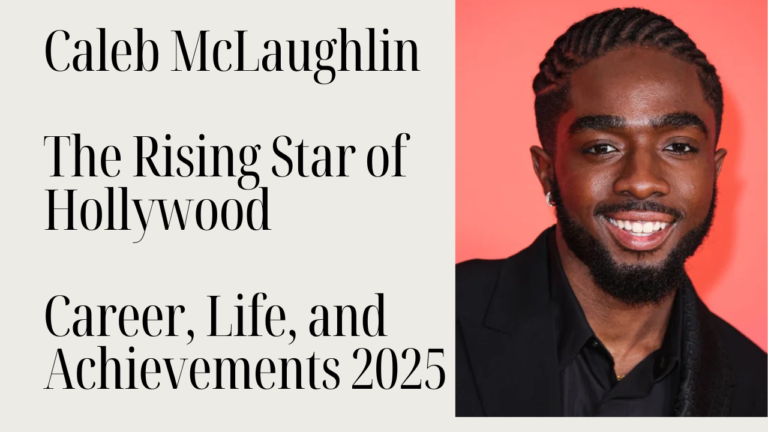
Every so often, the entertainment industry witnesses a figure who sparks conversations that stretch far beyond their music. YNW Melly, born Jamell Maurice Demons, is one such name. His journey from rising rap star to a central figure in legal debates has turned him into a lightning rod for discussions in music circles, online forums, and major media outlets.
Melly’s unique combination of melodic flows, emotional vulnerability, and street storytelling drew in fans at a rapid pace. But it’s not just his discography that keeps him in the headlines, it’s the intertwining of his art, his legal troubles, and the broader social questions his story raises.
From Local Buzz to National Attention
Long before the controversies, YNW Melly was making waves in Florida’s rap scene. Tracks like Murder on My Mind brought both acclaim and curiosity, with its haunting lyrics foreshadowing the intense scrutiny he would later face. His early career stood on a blend of raw authenticity and a knack for crafting hooks that stuck in listeners’ heads.
Social media became his launchpad. Fans shared his music across platforms, and soon, industry heavyweights started noticing. Collaborations with artists such as Kanye West added star power to his resume, while streaming numbers proved that his reach extended far beyond the South Florida rap community.
Legal Drama That Shaped the Narrative
While his music was climbing charts, Melly’s personal life became the focus of national attention. His arrest in 2019 for double homicide charges shifted the conversation entirely. Suddenly, media headlines weren’t about his latest single, but about his courtroom appearances and legal strategy.
Major outlets covered every development, from trial delays to new evidence. This coverage created a split in public perception; some saw him as an artist caught in a tragic situation, while others viewed him through the lens of the allegations against him.
The courtroom drama turned into a pop culture spectacle, with fans dissecting every legal update on TikTok, Reddit, and YouTube channels dedicated to “true crime” coverage.
Fans, Fandom, and the Internet’s Role
The internet didn’t just report on YNW Melly’s situation, it shaped the entire conversation. Hashtags, reaction videos, and “free Melly” campaigns flooded platforms like Twitter and Instagram. For some fans, supporting him was about believing in his innocence or highlighting issues in the justice system.
Memes and fan art kept his image alive, even during periods when he couldn’t release new music. Other fans expressed more conflicted feelings, acknowledging their love for his artistry while struggling with the seriousness of the charges he faced.
In online culture, fandom often intersects with activism and marketing. YNW Melly became a prime example of how a musician’s legal battles can become part of their brand identity, for better or worse.
The “YNW Melly Free” Movement
Somewhere in the middle of all the noise, a unified rally cry emerged ynw melly free. This phrase, seen on social media banners, in comments under music videos, and even on merchandise, became both a slogan and a dividing line.
Supporters used it as a show of solidarity, framing Melly as a victim of systemic issues within the justice system. Critics, however, argued that the phrase downplayed the severity of the accusations against him.
Regardless of which side people stood on, ynw melly free became an unavoidable part of the conversation. It wasn’t just about one artist anymore it was about the complex relationship between art, morality, and public opinion.
Media’s Double Lens
The way the media covered YNW Melly highlighted a familiar pattern: sensational headlines and selective framing. Entertainment outlets focused on his music milestones, while news organizations leaned heavily into the criminal case. This split reinforced the idea that public perception is often shaped by which “version” of the story you follow.
Some think pieces dug deeper, analyzing how Melly’s case reflects broader racial and cultural biases in the justice system. Others questioned whether it’s ethical to celebrate an artist while such serious accusations remain unresolved.
In a sense, Melly’s story became a case study in modern celebrity culture where fame, controversy, and personal branding are tightly intertwined.
Music as a Reflection of Reality
Even in the midst of his legal struggles, Melly’s music continued to find an audience. New releases, often recorded before his incarceration, gave fans insight into his mindset. Lyrics took on new meaning when listeners interpreted them in light of his legal case.
Songs became more than entertainment; they were analyzed as if they held clues or confessions. Whether intentional or not, this lyrical scrutiny kept his work in cultural conversations long after its release date.
Public Opinion: Divided and Unyielding
The split in public opinion around YNW Melly mirrors a larger societal debate: Can you separate the art from the artist? Some listeners continue to enjoy his music without feeling morally compromised, while others have stopped supporting him entirely.
The debate extends beyond music. It touches on questions about redemption, justice, and how the court of public opinion sometimes operates faster and harsher than the actual legal system.
What Happens Next?
Melly’s future remains uncertain, with ongoing legal proceedings continuing to influence his career trajectory. Whatever the outcome, his story has already cemented its place in music history not just for his talent, but for the way it exposed the messy intersections between fame, media narratives, and public morality.
His journey forces fans and observers alike to confront uncomfortable questions: How much of what we believe is shaped by headlines? Do we allow our admiration for art to cloud our judgment of the artist? And in the age of viral content, can any public figure truly escape the echo chamber of online perception?
YNW Melly’s story isn’t just about one man’s legal troubles. It’s about the larger machinery of fame the way media cycles, fan loyalty, and internet culture collide to create a narrative that’s almost impossible to control.
Whether seen as a misunderstood artist, a cautionary tale, or something in between, Melly’s place in the cultural conversation shows no sign of fading. For better or worse, his name remains a talking point and perhaps that, more than anything, is the true mark of his impact on both music and society.





